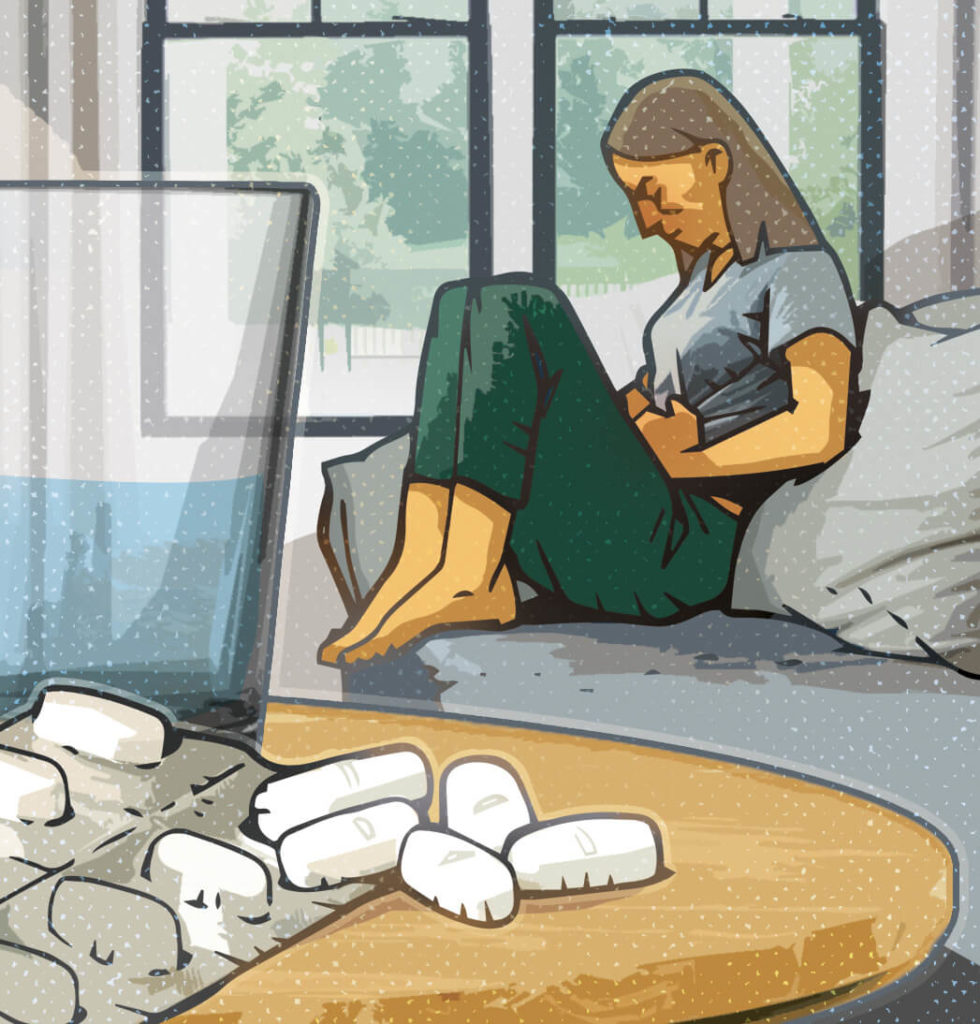
An inhabitant of our digestive tract
It naturally colonizes our digestive tract, where it will proliferate at our expense when we consume antibiotics. Indeed, antibiotics3 will eliminate most of the microbes constituting our digestive flora, leaving the place vacant to Clostridioides difficile, which then proliferates. Similarly, chemotherapies administered to treat cancer will have a certain toxicity on the bacteria of our digestive tract, also predisposing to the proliferation of Clostridioides. Thus, this is an example of an infection of endogenous origin (linked to our own flora) that occurs as a result of an imbalance in our digestive flora.

